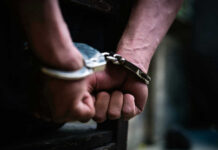
Another horrific church massacre makes Americans wonder how many innocent people must die while the world sits back and does nothing about radical Islamist terror.
At a Glance
- At least 38 killed, dozens injured, and several abducted when ISIS-affiliated ADF rebels attacked a Catholic church in Komanda, eastern DRC.
- ADF, originally a Ugandan group, has escalated violence since pledging allegiance to ISIS in 2019.
- Local authorities and NGOs confirm that the group targeted civilians during a church prayer gathering.
- The region remains unstable, with families displaced and security forces searching for the attackers.
Church Massacre in Congo: Another Example of Terror Ignored by the World
The world woke up to another brutal reality after ISIS-linked rebels stormed a Catholic church in Komanda, eastern Democratic Republic of Congo, leaving at least 38 dead and many more wounded.
It’s the kind of attack that reminds you just how far the world has strayed from prioritizing faith, family, and basic decency. At the same time, the so-called global leadership either shrugs or offers yet another round of empty “condemnations.”
The group responsible, the Allied Democratic Forces (ADF), has turned the region into a nightmare, and the lack of decisive response is nothing short of infuriating. This isn’t some far-off skirmish; it’s a barbaric assault on human life, religious freedom, and the very values Western civilization was built on.
ADF’s history with violence is well-documented. Originally a Ugandan Islamist group from the 1990s, they’ve mutated into an ISIS franchise, spreading their reign of terror in areas where the government is weak and society is desperate for order. Since pledging loyalty to the Islamic State in 2019, their attacks on churches and villages have only grown bolder.
What’s most horrifying is their deliberate choice to strike during a prayer gathering—a moment meant for peace and reflection, shattered by hate and machetes. As the dust settles, the world’s so-called “leaders” will issue statements, but it’s the families in Komanda who will bury their dead and wonder why nobody steps in to stop this madness.
ADF: ISIS’s Newest Franchise in Africa and the Collapse of Local Authority
The ADF’s bloody legacy is a direct result of failed government and an international community more interested in woke causes than real security. The group thrives in eastern Congo’s Ituri and North Kivu provinces—areas with chronic instability, ethnic violence, and a complete absence of meaningful law enforcement.
It’s not just about poverty or local grievances; it’s about an ideology bent on erasing Christianity and Western values. The Catholic church in Komanda was defenseless, hosting a simple prayer service when the terrorists struck. The result? Dozens dead, families torn apart, and a fresh wave of fear that will send more innocent people fleeing their homes.
Local government, NGOs, and even the United Nations have all been quick to condemn the attack, but their words mean little when the ADF operates with total impunity. The rebels exploit every gap in authority, turning remote villages into hunting grounds.
The so-called “international community” is always ready to pass the collection plate for humanitarian aid, but where is the action to stop these killers? The sad truth is, as long as there’s no real cost for terror, the attacks will continue—and the world will keep pretending it’s not their problem.
Community Devastation and the Erosion of Faith in Leadership
The aftermath of the Komanda massacre goes way beyond the body count. Survivors face trauma that will last a lifetime, families are displaced in fear, and local economies are shattered. The government’s inability to protect its citizens is evident to anyone paying attention, and it opens the door for even more chaos.
When people can’t trust their leaders to keep them safe, extremist groups like the ADF find recruits, and the cycle of violence deepens. The targeting of churches isn’t just a coincidence—it’s a calculated strategy to destroy hope and faith, the very foundations of a strong society.
NGOs and international agencies are scrambling to provide aid, but they’re also at risk in a region where law and order are just words on a piece of paper. Peacekeeping missions are stretched to the limit, and humanitarian workers know that every day on the ground is a gamble.
The pressure is on the Congolese authorities, but without outside support and a global reckoning with Islamist terror, the situation shows little sign of improvement. The attack on Komanda’s church is not just a regional tragedy—it’s a warning of what happens when the world forgets that evil, left unchecked, only grows stronger.
Expert Analysis: Why This Keeps Happening and What Needs to Change
Security analysts agree that the ADF’s ability to mount large-scale attacks comes from glaring gaps in local and international security. Human rights advocates are right to call for more protection, but calls for “accountability” mean nothing without real consequences for the perpetrators.
Academics and conflict scholars point to a toxic mix of poverty, weak governance, and radical ideology. Some claim the solution is more aid and less military action, but history shows that appeasement and handouts don’t stop terrorism—they embolden it.
Reports from major international outlets and local officials all paint the same picture: a region spiraling out of control, families living in fear, and the world doing little more than watching from a safe distance.
The facts are clear—the attack on Komanda’s church is part of a broader campaign against religious freedom and basic human dignity. It’s time to stop pretending that statements and hashtags are enough. If the world truly believes in protecting the innocent and defending faith, it needs to act with strength, not just sympathy.



















